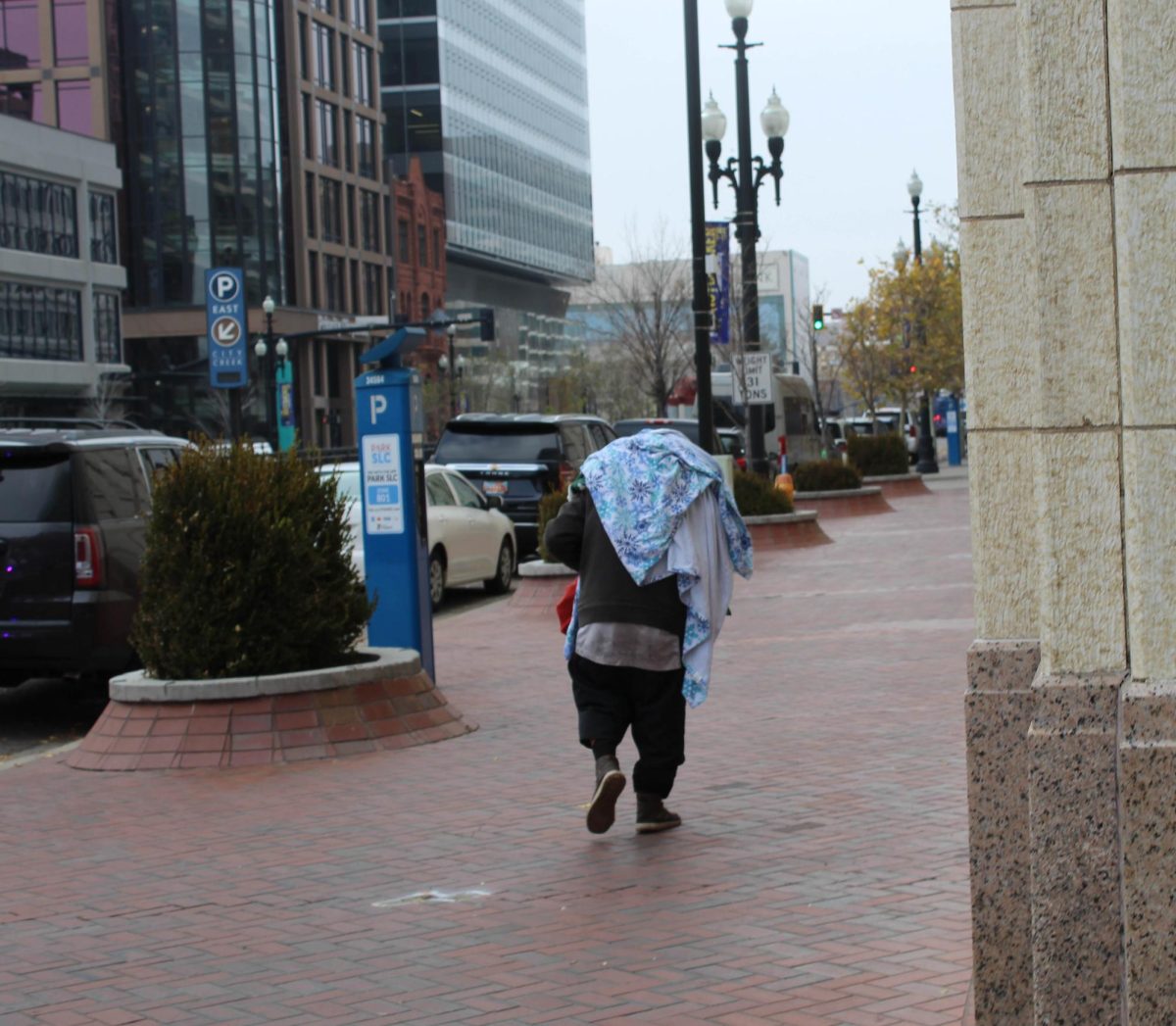
To FBI Special Agent Benton Larsen, who served as deputy prosecuting attorney on Sept. 11, 2001, there was no better way to remember the tragedy of the attacks on that day than with the recruitment of tomorrow’s defenders of our nation.
“Our mission, in the simplest terms, is to protect the American Public” said Larsen, dressed in an American flag tie. “I am unabashedly wearing this tie today.”
He said this in jest before asking a room full of potential FBI recruits to share in a moment of silence with him.
Larsen borrowed words from a superior to communicate his ultimate message to the prospective FBI recruits. “Live your life like you want to be an FBI Agent,” Larsen said, “and plan your career like you don’t.”
A psychology freshman Rickie Davis was among those interested in the FBI meeting, which took place the afternoon of Sept. 11 in the Student Union building. When asked if she wanted to go into the FBI, Davis responded that she wasn’t completely sure.
“I don’t know yet, I just want to help people,” Davis said, which seemed to be the exact type of answer the FBI is searching for.
Because of the long journey to joining and the myriad of specific traits the FBI is looking for, Larsen advised the prospective recruits that nothing could set them apart more than training and working in an area they loved, developing the skills and love for the work in that field first.
Constitution, respect, compassion, fairness, integrity, accountability, leadership and diversity are the founding principles and guiding words of the FBI, and, therefore, the main qualities they search for in potential employees.
Larsen emphasized the idea that becoming an FBI agent is no walk in the park. He described the application and testing process in great detail, especially the grueling demands of a special agent.
“You need thick skin if you’re going to work for the FBI,” Larsen said.
First, Larsen described the interview process. It takes at least one year to even get an interview because agents have go through an extensive background check, which alone takes six to nine months.
Then, agents undergo a physical fitness test, which he said has been tested on professional athletes, police force and military personal, who have not passed.
Finally, there are three interviews, one of which includes a polygraph test. Ultimately, Larsen said 5% of those who apply are offered a position.
Larsen himself has served as a special agent for 16 years, after having been a prosecuting attorney.
Larsen said he, “never would’ve envisioned in a million years the things I’ve gotten to do.” He went on to tell the group how he has been to Nepal, the UK and North Korea on behalf of the FBI, including four years he spent on a Native American Reservation working on a mission to solve an extreme human trafficking epidemic.
“It’s been a heck of a ride,” he said.
All employees of the FBI are required to spend at least one week at Quanitco, the FBI Training Facility. But depending on the job, the training could end after that one week, or it could extend to the 20 week intensive-training special agents endure.
“The job doesn’t get easier either.” Larsen said. “I’ve missed birthdays. I’ve missed holidays. I have missed things I didn’t want to miss. Because you have to answer the bell.”
Special agents must be willing to work and live anywhere, anytime. To even apply, a prospective recruit must have three years full time work experience, or two years if he or she already has an advanced degree.
There is also a very strict drug policy, which includes no marijuana use in the past three years and no other illegal drug use of any kind in the past 10 years. All applicants must also be U.S. citizens.
However, Larsen emphasized that the FBI needs more diversity, particularly women. “Plain and simple, the FBI isn’t diverse enough,” he said. Of the almost 14,000 Special Agents, 2,000 of them are females. “That is not enough,” Larsen said.
Although the process is strict and taxing, the FBI understands that no one is perfect. “We don’t expect you to be perfect, just perfectly honest,” Larsen said.
One perk Larsen noted, unlike other jobs where you have to earn respect from nothing, it is understood that if someone has been offered a position he or she has earned respect already. Although the path is long and hard, once you walk in the door, “you are family,” Larsen said.
Larsen left the eager prospective recruits with words some words of wisdom. “Just be willing to plunge forward and accomplish the mission,” Larsen said.
There is a highly competitive, paid, summer internship with the FBI open now. Applications close October 14. For more information, visit the FBI website. The application and selection process follows the same procedures as hiring actual agents.
The critical skills the FBI looks for, as well as the list of programs within the FBI, are also on the website.
For more information about jobs go to fbijobs.gov, or feel free to Contact Special Agent Larsen personally, as he is the recruiter, at belarsen@fbi.gov. Also make sure to follow FBI Jobs on Facebook, Twitter, YouTube and LinkedIn.



















